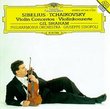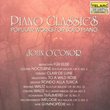| All Artists: Wilhelm Kempff, Beethoven, Brahms, Faure Title: Wilhelm Kempff 3 (III) (Great Pianists of the Century series) - Beethoven / Brahms / Faure / Mozart /Schubert Members Wishing: 3 Total Copies: 0 Label: Philips Release Date: 7/20/1999 Genre: Classical Styles: Chamber Music, Forms & Genres, Concertos, Sonatas, Historical Periods, Classical (c.1770-1830), Modern, 20th, & 21st Century Number of Discs: 2 SwapaCD Credits: 2 UPC: 028945686820 |
Search - Wilhelm Kempff, Beethoven, Brahms :: Wilhelm Kempff 3 (III) (Great Pianists of the Century series) - Beethoven / Brahms / Faure / Mozart /Schubert
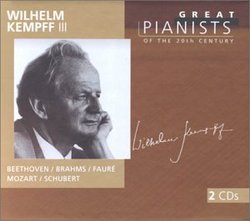 | Wilhelm Kempff, Beethoven, Brahms Wilhelm Kempff 3 (III) (Great Pianists of the Century series) - Beethoven / Brahms / Faure / Mozart /Schubert Genre: Classical
Wilhelm Kempff, who died in 1991 at the age of 95, was among the last musical emissaries of German Romanticism. Raised in the rich cultural and intellectual soil of Wilhelmine Prussia, he studied philosophy and music histo... more » |
Larger Image |
CD DetailsSynopsis
Amazon.com Wilhelm Kempff, who died in 1991 at the age of 95, was among the last musical emissaries of German Romanticism. Raised in the rich cultural and intellectual soil of Wilhelmine Prussia, he studied philosophy and music history at the University of Berlin while taking a diploma in piano at that city's Hochschule für Musik. As an interpreter, Kempff saw music in context. He could relate the emotional world of a Beethoven or Schubert sonata to feelings expressed in Goethe's poetry, or explain its structure using analogies drawn from classical architecture, as easily and convincingly as he could phrase a singing line at the piano. Beauty of tone, clarity of texture, and graceful phrasing were the hallmarks of his playing, and they are much in evidence in the recordings gathered here. As in volume I and volume II of the Great Pianists series devoted to Kempff's artistry, the selection of repertoire for this two-CD set was made by Alfred Brendel, and it shows Kempff for the most part in splendid form. The Mozart concerto is vibrantly played, the two Beethoven sonatas and rondo dispatched with energy and the kind of spiritual elation that comes only from a deep affinity with the music. There is evidence aplenty of Kempff's extraordinary ear--as in the opening solo passage of the Mozart concerto, when he corrects for a slightly too-strong high C in the very next figure. He brings remarkable inner-voice detail to the Brahms and the Schumann, without sacrificing thrust in the former or a singing line in the latter. Of special note here are the Mozart variations, recorded live in 1956 and showing a much more spontaneous side to Kempff than we are used to from his studio recordings, and the Fauré nocturne, an exquisite cameo in the French style, recorded in 1945 by the preeminent German pianist of the postwar period. --Ted Libbey Similarly Requested CDs
|
CD ReviewsNaturalness, spontaneity and exactitude! Hiram Gomez Pardo | Valencia, Venezuela | 07/30/2005 (5 out of 5 stars) "If you have ever heard of any other pianist who has made to sing the piano as Kempff did it, please let me know it. The captivating and spelling idiosyncrasy of a musician who is always seeking to express what lies bellow the surface and the will to discover and recreate the meaning of any musical work. As Wilhelm Fürtwangler stated once: " I actually the true interpreter is who identifies himself with the work and who improvises it all over again...I try to communicate my vision rather than my will and I prefer the reasons of the heart than all others...When technique becomes the only purpose, we are in fact losing the sense of the form".
And that's why the interpretation was not merely a matter of execution for Kempff. W.K. has said of the piano: "No other musical instrument is as wonderful as the piano. You are alone when you play." "The record is a creative product, a little piece of eternal life" His honesty, artistic commitment and wisdom are not exhibited as additional ornaments of his playing; but under the service of the performing. His lyricism is not preconceived, it comes from a natural consequence of his personal vision. Here you have, briefly some of the reasons that convince me Kempff musicality are so hard to find. I wish to conclude with a brilliant observation of Fürtwangler: "The art of fixing without congealing whilst respecting all hazard, this is what fascinates me. Interpreting is to conceive a music in its superior coherence." " |

 Track Listings (20) - Disc #1
Track Listings (20) - Disc #1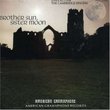

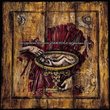


![Across The Universe [Deluxe Edition]](https://nationalbookswap.com/cd//m/51/1251/1241251.jpg)

